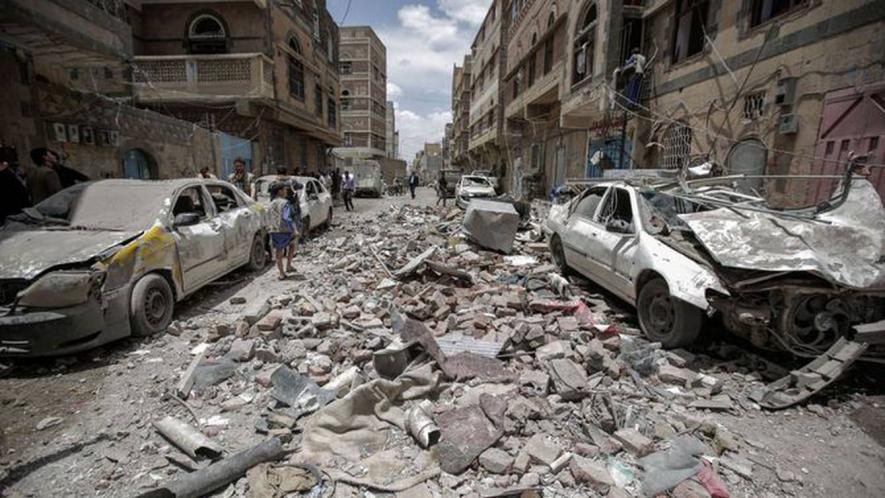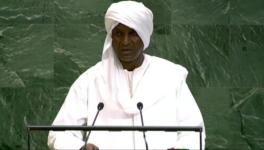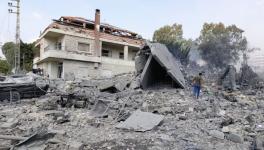Saudi-led Coalition Announces a Halt to Airstrikes Targeting Houthis in Yemen

The aftermath of a Saudi-led coalition air strike in Sanaa, May 2019. Photo : Gisreportsonline.org
The Saudi-led military coalition in Yemen will stop airstrikes targeting the Houthis, a spokesperson for the coalition announced. The move is to try and create a conducive political atmosphere to end the conflict. The coalition spokesperson, Turki al-Maliki, said that “the de-escalation is aimed at preparing the political groundwork for a peace process in Yemen.”
Earlier this month Omani government officials visited the Houthis in Yemen’s capital Sanaa and after which on Wednesday, June 9, the Omani foreign minister, Badr al-Busaidi, arrived in Saudi capital Riyadh for mediation talks and to chalk out a ceasefire agreement.
Al-Maliki denied reports of bombing a Houthi armored division near Sanaa saying “no military operation has been carried out in the vicinity of Sanaa or any other Yemeni cities in the past period.” Meanwhile, the fighting between forces of the Saudi-backed Yemeni government of president Abdrabbuh Mansur Hadi and the Houthis continues in and around Marib, with the latter trying to wrest control of the oil-rich province. Situated in the north of the country, Marib is strategically important for the Hadi regime as it depends heavily on the revenues generated from the gas fields in the province.
The Houthis have put forth two main demands as conditions for accepting a ceasefire agreement — the reopening of the airport in Sanaa, closed since 2016 after the Saudis grounded all flights, and the lifting of sea blockade of the Houthi-controlled areas of Yemen. The Houthis were reportedly carrying out repair work on the roads to the Sanaa airport, raising hopes of a potential ceasefire agreement.
The Saudi-led military coalition intervened in Yemen in March 2015, following the Houthis’ takeover of large parts of the country. The subsequent civil war and the incessant Saudi airstrikes have killed hundreds of thousands of Yemeni civilians and has made more than 14 million Yemenis– nearly half of the total population of approximately 30 million – into refugees. The blockade has led to the economy of Yemen suffering and has also caused a grave humanitarian crisis due to acute shortages of food items, medicines, fuel and other essential commodities.
Both the Houthis and the Yemeni government, along with its Saudi-led coalition backers, have welcomed the mediation by Oman, which is one of the few Arab countries that did not join the Saudi-led Gulf military coalition against the Houthis in 2015.
The last attempt at a ceasefire agreement both sides signed was in Stockholm in 2018 as a result of UN-led mediation talks. The Stockholm agreement was ultimately never fully implemented.
Courtesy: Peoples Dispatch
Get the latest reports & analysis with people's perspective on Protests, movements & deep analytical videos, discussions of the current affairs in your Telegram app. Subscribe to NewsClick's Telegram channel & get Real-Time updates on stories, as they get published on our website.
























